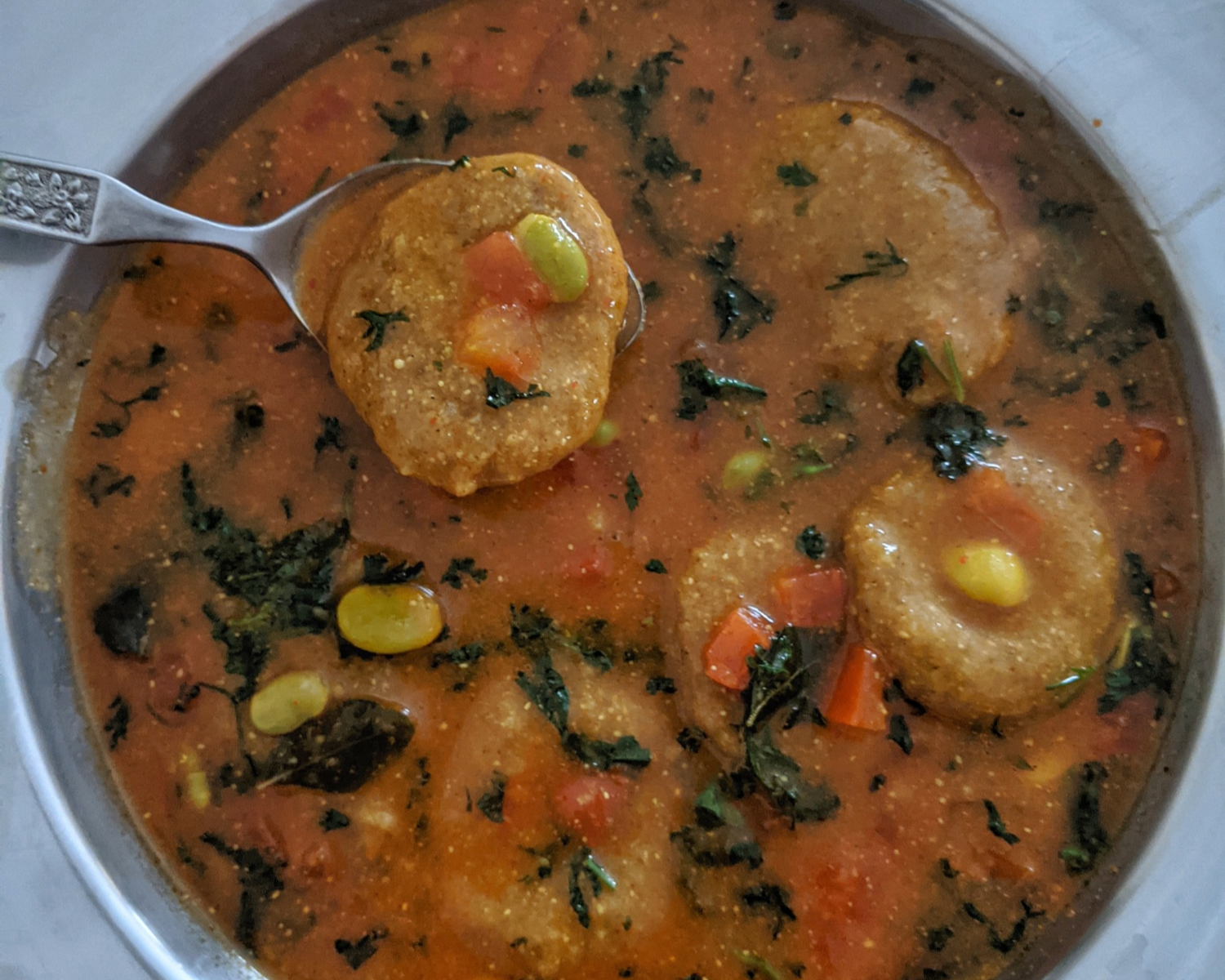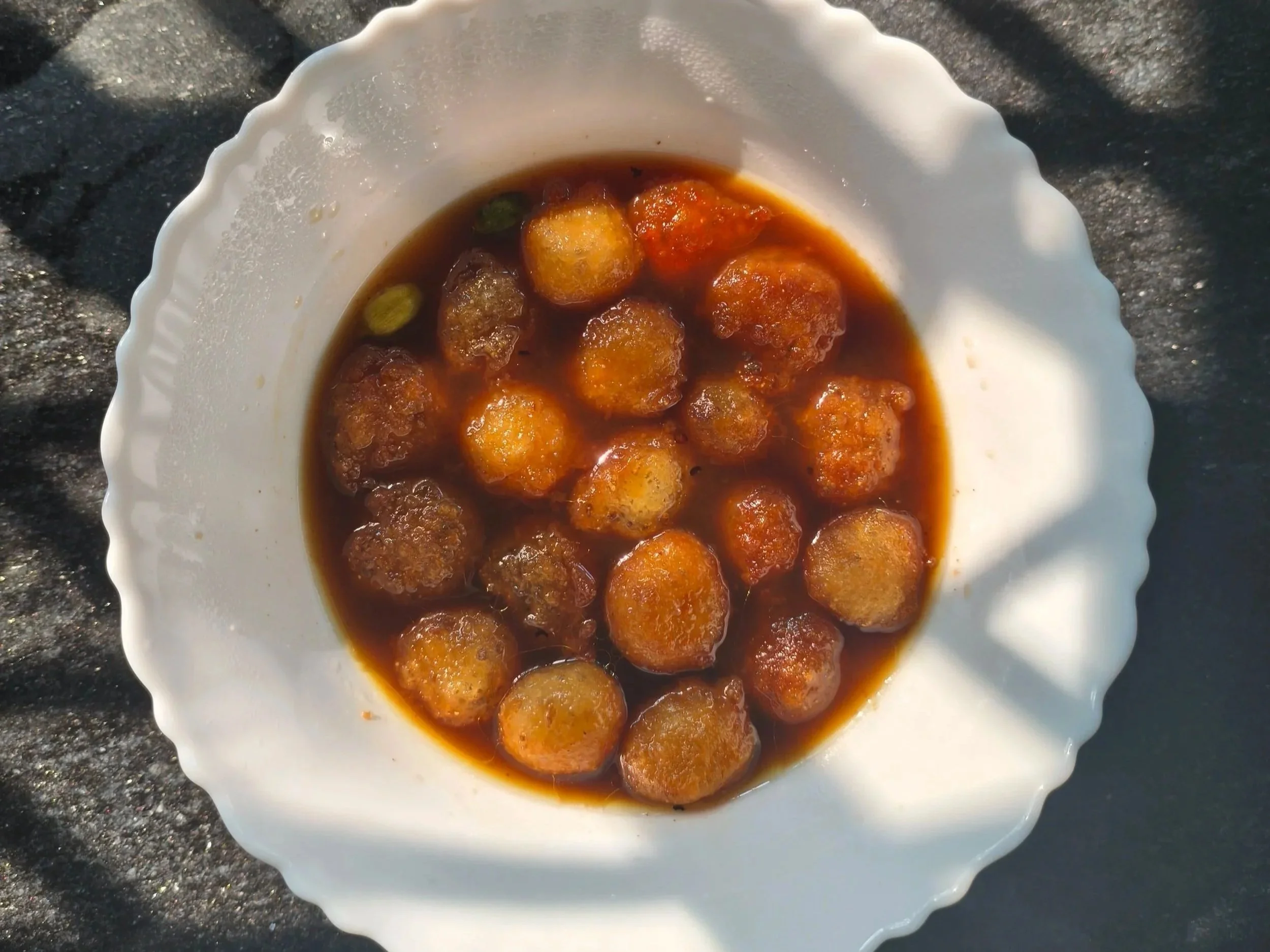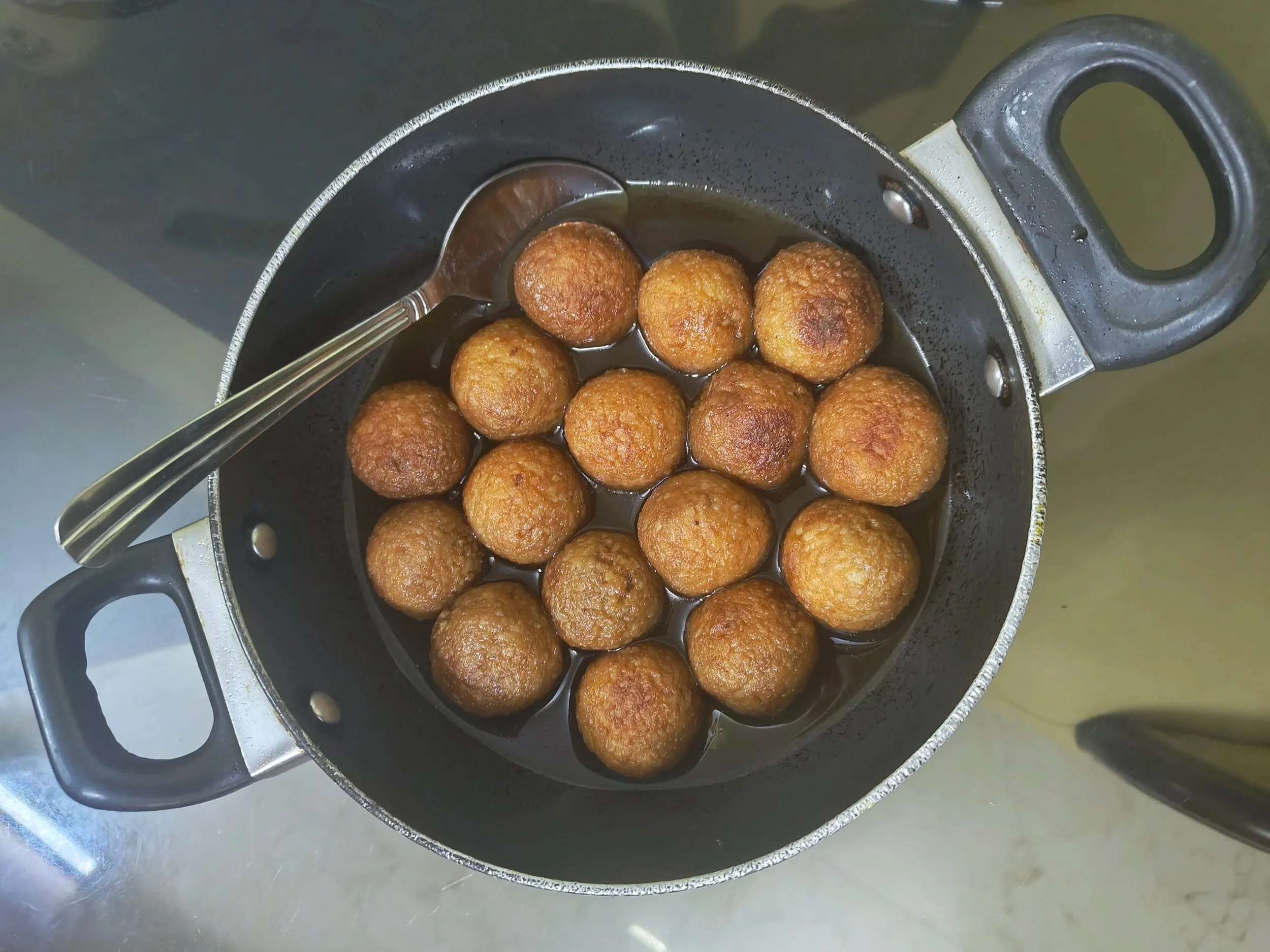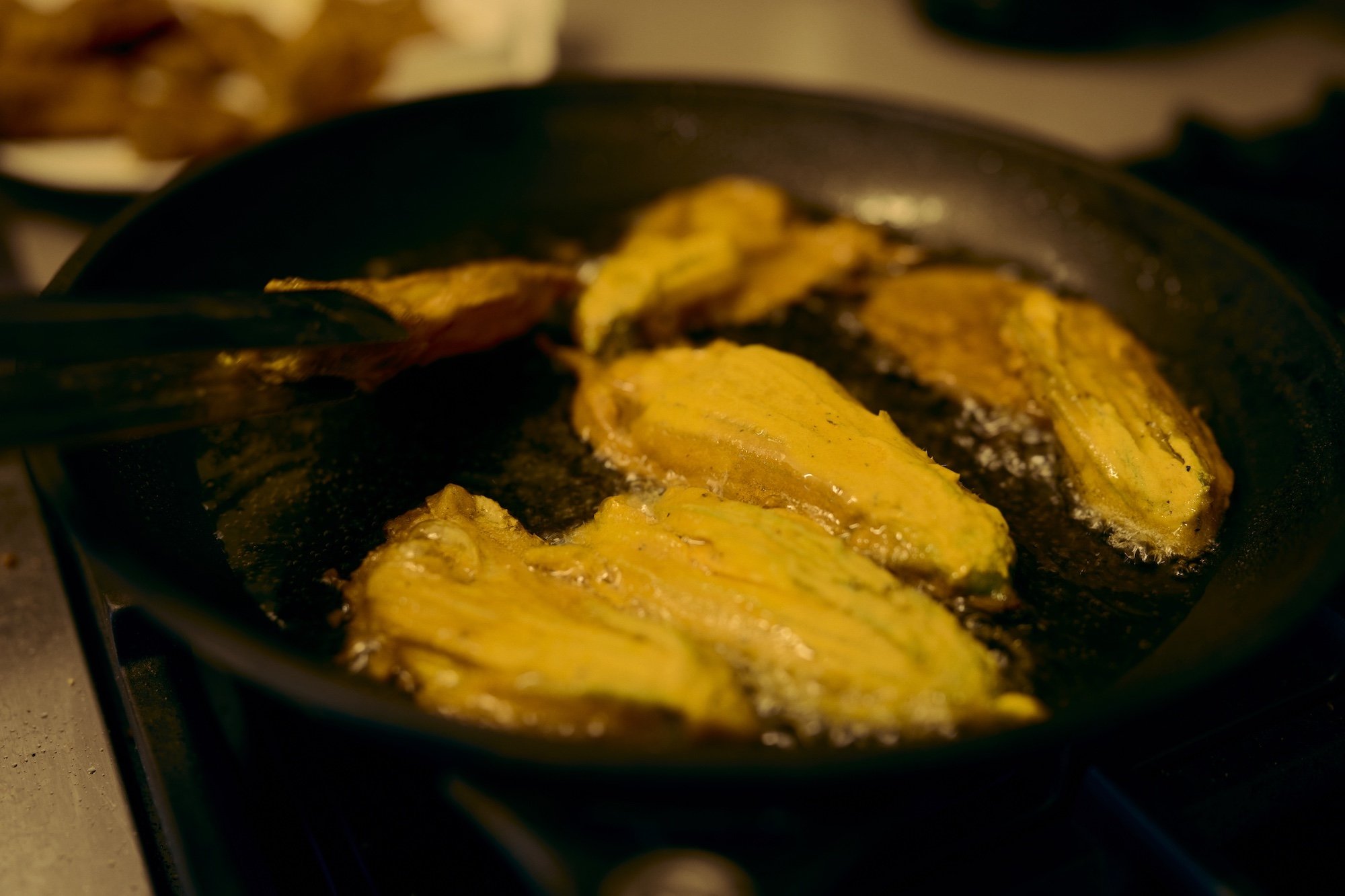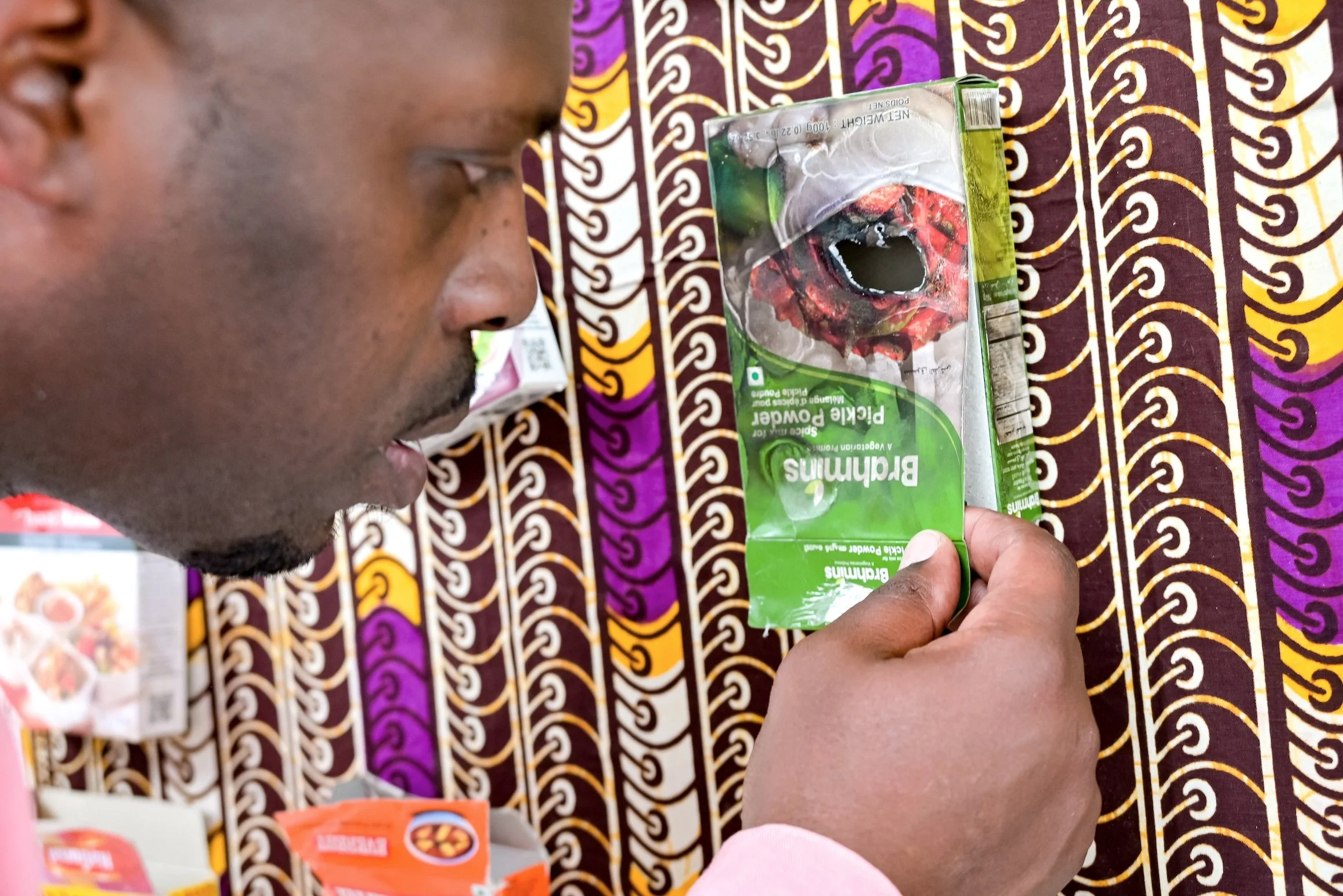Cooking in the time of Coronavirus & Social Distancing
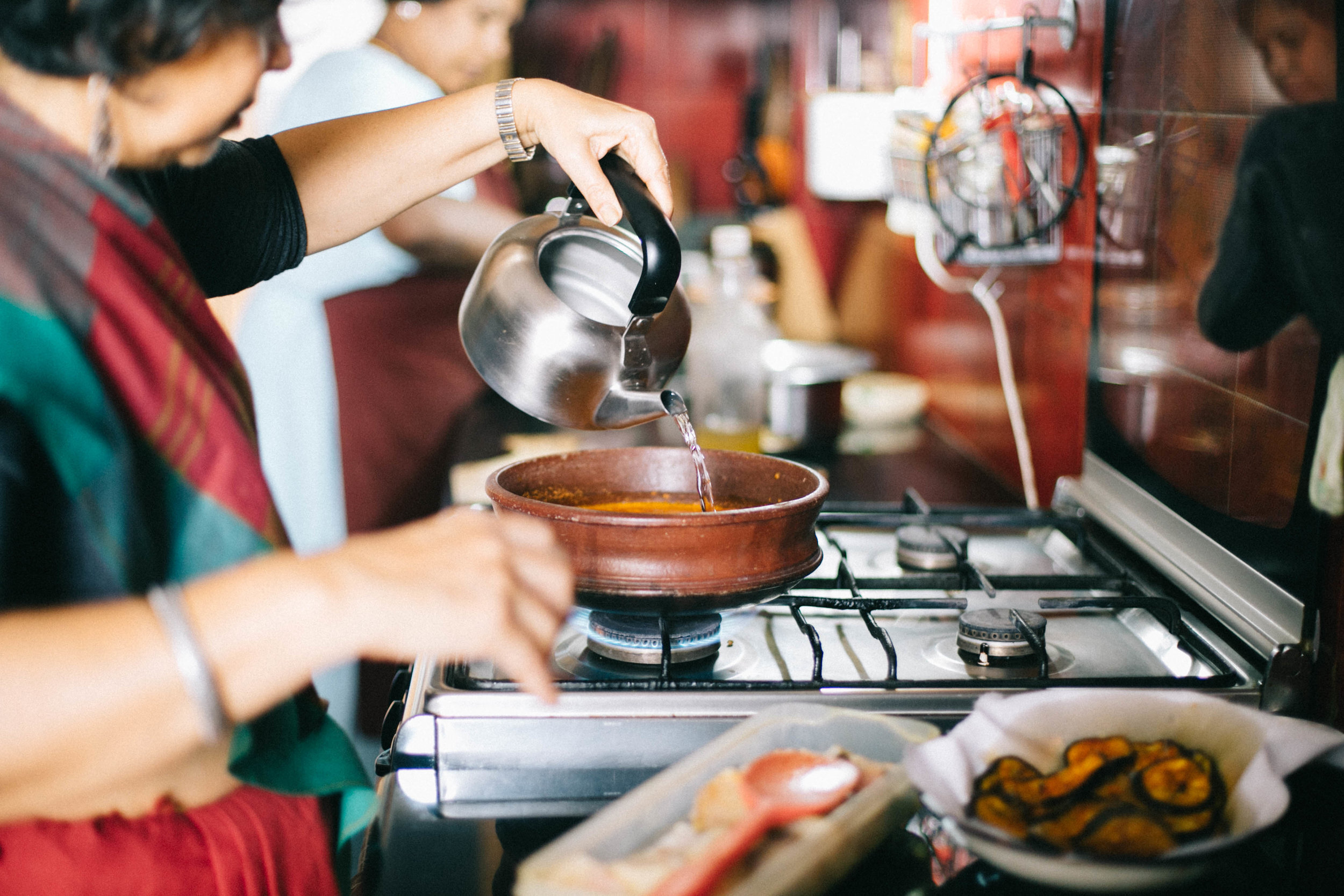
While socially isolating in the midst of a pandemic and its ensuing anxiety, the kitchen can be an oasis of creativity and calm. Anusha Murthy sets down a few guidelines to building culinary confidence when it matters most.
After endlessly scrolling through all the latest COVID-19 news, I anxiously stepped into my kitchen armed with freshly stocked dry staples. I attempted to do something I had never done before — cook myself a slow, frivolous meal on a weekday. I began with dry-roasting some peanuts and spices, then slicing some brinjals, as I waited for the spices and peanuts to cool before grinding them in the mixer. I’m making Gutti Vankaya Kura, following Whatsapp instructions from my mother-in-law. Not to mention rotis — rotis that I made myself! — not hurriedly picked up from the freezer section of the supermarket.
Amidst a pandemic, as most of us begin to work from home, we find ourselves in the kitchen — many first-timers — as quarantined cooks.
While some of us might have the time and energy to cook meals during a working day, the constant anxiety from catching up with the outbreak, and the sheer boredom of spending time in confined quarters, leaves many of us with an itch to delve into uncharted territory. For most, our first tryst with cooking was watching our mothers or grandmothers cook. Some of us can whip up a multi-course meal effortlessly while others are a fire hazard waiting to happen.
Either way, we have all been pampered with the best of food at home. Thanks to our strong food culture and patriarchal system, most of us have probably never had to step into the kitchen either. The idea of chopping vegetables and putting together a meal for ourselves on a work day seems like too much effort, especially if you live by yourself.
But there are some very obvious reasons for why we should cook more, quarantined or not.
Learning to make a delicious meal for oneself is a life skill (and Bill Gates agrees). It’s also one of the most primal forms of self-care — listening to your body, and feeding it what it needs. Cooking is an accessible way to make sure you eat a healthy meal with full control over your ingredients.
But the simple act of cooking at home also benefits the food system.
We have never been so detached from our food. Food is still grown and eaten; this hasn’t changed. But what has changed is how this food is made, which in turn, shapes what we eat today. For those of us who haven’t learned to cook, eating has never posed a problem; a meal is a button-tap, or a couple of discount codes away. But what happens when we outsource our cooking to companies?
Companies have different goals from food than we do, for them. In fact, theirs is more a logistics problem than a ‘food’ problem.
How do we make ordering food more lucrative? How do we increase re-orders, how do we decrease the order-delivery times, how do we increase the cart-conversion ratio? — are perhaps some of the main goals. Food is merely a byproduct of this process. Biryani, one of the most ordered dishes online, has every ingredient (except rice) completely frozen and ready to be assembled in cloud kitchens. Food from these dark kitchens have made it dangerously easy to get hooked to the convenience and the vague idea of ‘homely’ meals. Decline in home cooking has been linked to an increase in obesity rates among consumers, in countries like the US.
As we rely on a more industrial food system, what we grow and eat changes drastically, with power contained within a few corporate hands. Just 10 companies in the world, control pretty much everything that we eat and drink today. While healthy food delivery is a huge market by itself, it is far away from becoming mainstream, and will not materialise unless we demand it.
“Cook. Cooking is the only way to make sure you eat real food rather than edible food-like substances.”
Culinary confidence is not just about cooking, but about understanding the basics of food, its nutritive properties and how to put together a meal. It helps us make more informed and sustainable food choices. If we don’t care about the produce or the food we eat, we won’t bother about the impact it has on the planet or people who grow our food.
Getting curious about cooking is the first step to developing culinary confidence.
Sophia Lorenzi, founder of Hoste productions, curates culinary experiences to get people excited about food. From her decade-long experience with getting people more curious about cooking, she uses a simple 5-pronged approach that works for her: science, play, community, culture, and nutrition. Different approaches work for different people, she says.
Community: Cooking and bonding over food is a great way to host people and make new friends. “If you grew up dining around the table and it’s a positive experience for you, you will bring that in. As an adult, find a group of people who inspire you to do that,” says Lorenzi.
If this sounds like you, find your clan, and get cooking with them! Start with a simple dinner party. If that sounds too complicated, begin with a baking or cooking class near you. Or cook for Instagram — use tht social validation to fuel your skills!
Science: The science of cooking lures some people into it. “When you’re cooking, it’s alchemy: it is converting one element into another. It’s a surprise, it’s a mystery, it’s an experiment,” Lorenzi explains.
Ajit Bhaskar, scientist and overall creator of some very drool-worthy dishes in his home-food lab, stands by this. “Science and food complement each other very well. Science is all about playing with elements and forces and the same holds true for cooking as well. There are elements of taste and flavour and texture, and you use forces of heat (flambe, pan, steam, bain-marie, no heat etc.) to create a good dish. And both are super fun!”.
So how does he apply this experimental mindset to cooking? “When I’m cooking, I find some kind of inspiration — for instance, Bengali flavours with the piquant taste of mustard, or Mexican, with the signature flavours of jalapenos and chipotle peppers. I then build my cooking around this, with some core ingredients (spices/condiments) and whatever else I have in the kitchen. If I am trying something new, I don’t mind looking at a recipe. But I rarely replicate it. I invariably tweak it to suit my own palate.”
If science is your thing, I’d recommend getting your hands on a copy of On Food and Cooking, the bible of science and home cooking by Harold Mc Gee . It will pique your curiosity around the scientific reactions that form the basis of every cooking technique. And as added bonus, understanding the science behind how elements combine makes swapping out ingredients easier, and leads you down the path to experimenting with confidence.
Play: For some, food is theatre; it is dramatic and playful. It is one of the reasons you are hooked onto every episode Masterchef. You want to find out if that yolk is runny, or the steak is still rare, and the same could translate to your own cooking too.
It’s a lovely way to take a break from the constant scrolling and unwind off-screen! Many busy and working people find cooking therapeutic and meditative at the end of a long day. It might sound like the most impossible feat to pull off on a work night, but a little weekend planning goes a long way. And in times of social isolation, what better distraction that an ambitious home-cooking project?
Nutrition: The simplest, most effective case for cooking, is that it can help you eat healthy, “A lot of people discover food because they get sick all the time, or all kinds of things start to happen when you don’t eat well. If you eat better, you feel better,” says Lorenzi.
We’re all armed with a long list of foods we deem bad, yet we constantly indulge in cheat meals/ cheat days. The easiest way to ensure you eat something that fits in your macros and also makes you feel good, is to cook. If there’s something you really love to eat, your ‘guilty pleasure,’ eat it — as long as you make it at home!
Culture: Cooking traditions have been passed on to us over generations. Recipes are are how culinary knowledge of what foods to pair, and what to eat, were passed along. And this rich traditional culinary knowledge that we possess is seasonal, climate-friendly, and personalized to us.
Ask your mother why a recipe is made a certain way; why these ingredients are combined in this particular fashion, and you’re guaranteed to find interesting answers. I love that my Ammama makes her vadagam balls a certain way, it’s our unique spice blend, which she has tweaked over the years based on the health conditions of our family.
I am ashamed to say I don’t know all my family’s heirloom recipes, or why my certain dishes are made the way they are — and I consider myself a custodian of the family’s recipes! Yet, every time I cook with Ammama, I learn new things from her.
Food is also a great way to learn about someone else’s culture. It is the easiest way to bond and make friends across cultures.
...eating with friends and family is central to their idea of a good life. When restrictions in response to COVID take that away, quarantine cooking is the response.. writes Krish Raghav in his beautifully illustrated piece for the New Yorker.
These difficult times are a great opportunity to enter your kitchen and connect with food and cooking in a new way. Cook more, cook often! Be adventurous, be brave, be playful. A hot peppery Rasam may not cure you of the Corona virus, but it will bring comfort and strength to see you through another day.
---
If you’re looking for inspiration, here are some recipes you can start here. And ff you have questions about what to cook, we’re fielding all your worries through a Q&A on Instagram!
Anusha Murthy is an engineer, food-researcher, and co-founder of Edible Issues.
ALSO ON THE GOYA JOURNAL


